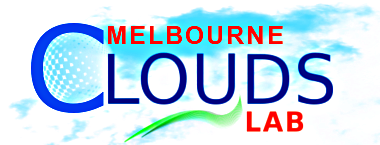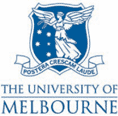iQuantum: A Melbourne Initiative for Quantum Computing
Recent breakthroughs in Quantum hardware are creating opportunities for its use in many applications. However, Quantum software engineering is still in its infancy with many challenges, especially dealing with the diversity of Quantum programming languages and hardware platforms. To alleviate these challenges, our iQuantum Initiative at the University of Melbourne is investigating fundamental research challenges and developing software systems and tools for the advancement of Quantum Computing paradigm by supporting (1) rapid creation of applications and their deployments and (2) modelling and simulation of quantum computing environments.
Team Members @ Melbourne qCLOUDS Lab
- Prof. Rajkumar Buyya
- Mr. Hoa Nguyen
External Collaborators
- Dr. Muhammad Usman, CSIRO, Australia
- Dr. Ying Mao, Fordham University, USA
- All co-authors of papers noted below!
Publications
- Sukhpal Singh Gill, Adarsh Kumar, Harvinder Singh, Manmeet Singh, Kamalpreet Kaur, Muhammad Usman, and Rajkumar Buyya, Quantum Computing: A Taxonomy, Systematic Review and Future Directions, Software: Practice and Experience (SPE), Volume 52, Issue 1, Pages: 66-114, ISSN: 0038-0644, Wiley Press, New York, USA, January 2022.
- Hoa T. Nguyen, Muhammad Usman, and Rajkumar Buyya, iQuantum: A Case for Modeling and Simulation of Quantum Computing Environments, Proceedings of the 2nd IEEE International Conference on Quantum Software (QSW 2023, IEEE CS Press, USA), Chicago, USA, July 2-8, 2023.
- Hoa T. Nguyen, Muhammad Usman, Rajkumar Buyya, QFaaS: A Serverless Function-as-a-Service framework for Quantum computing, Future Generation Computer Systems (FGCS), Volume 154, Pages: 281-300, ISSN: 0167-739X, Elsevier Press, Amsterdam, The Netherlands, May 2024.
- Hoa T. Nguyen, Muhammad Usman and Rajkumar Buyya, iQuantum: A Toolkit for Modeling and Simulation of Quantum Computing Environments, Software: Practice and Experience (SPE), Volume 54, Issue 6, Pages: 1141-1171, ISSN: 0038-0644, Wiley Press, New York, USA, June 2024.
- Hoa T. Nguyen, Muhammad Usman, and Rajkumar Buyya, DRLQ: A Deep Reinforcement Learning-based Task Placement for Quantum Cloud Computing, Proceedings of the 2024 IEEE International Conference on Cloud Computing (CLOUD 2024, IEEE CS Press, USA), ShenZhen, China, July 7-13, 2024.
- Resource-Efficient and Self-Adaptive Quantum Search in a Quantum-Classical Hybrid System
- Quantum Cloud Computing: A Review, Open Problems, and Future Directions
- qIoV: A Quantum-Driven Internet-of-Vehicles-Based Approach for Environmental Monitoring and Rapid Response Systems
- QSimPy: A Learning-centric Simulation Framework for Quantum Cloud Resource Management





